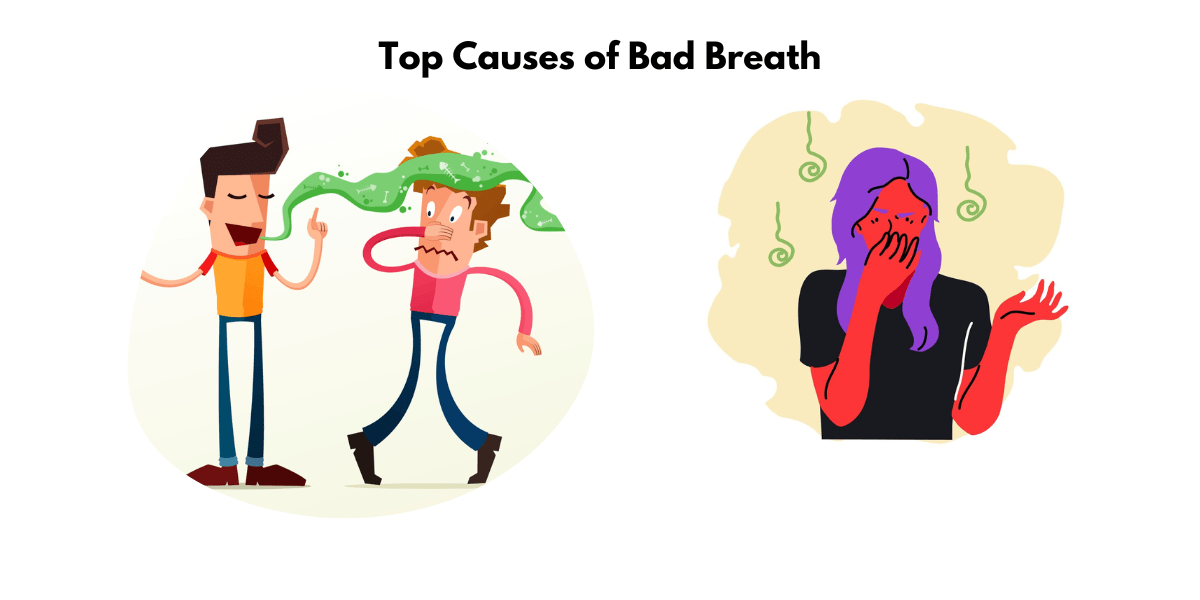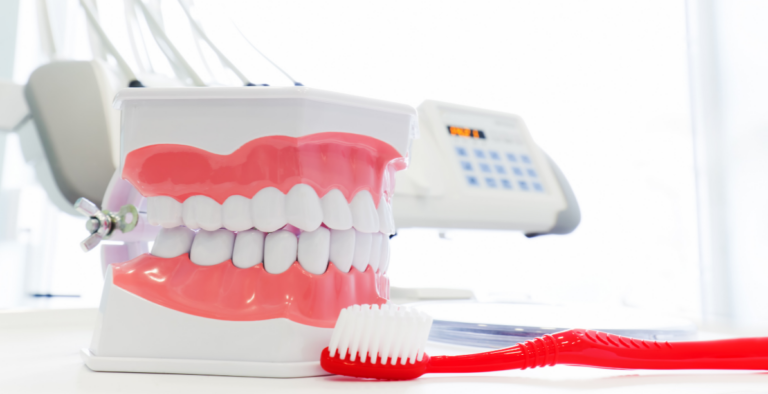Top Factors Causing Bad Breath: What causes foul breath and how to prevent it?
Top Factors Causing Bad Breath
Foul breath can have a significant impact on your personal and professional life. It can cause you to lose friends, make you feel self-conscious, and even cost you jobs. In this article, we will discuss the top factors that cause bad breath so that you can be better equipped to prevent it.
Most people, unfortunately, have to deal with foul breath at some point in their lives. There are many causes of foul breath, but the good news is that there are also many ways to prevent it. This article will discuss the top factors that cause foul breath and how you can prevent it from happening.
Though it may be socially preferable to try to “ignore” someone’s foul breath, the result may be that others limit their interactions with the malodorous person. Foul breath can have many causes, some of which are preventable. Knowing cavities causes bad breath and how to prevent it is the first step in taking control of this embarrassing problem.
It is important to be aware of the top factors causing bad breath so that you can take steps to prevent it. Halitosis, or foul breath, can have negative consequences for interpersonal relationships and self-confidence. It can even lead to feelings of confusion or isolation in some cases. By understanding the causes of foul breath and taking steps to address them, you can keep your oral health and your social life on track.
While foul breath can be an embarrassing problem, it is thankfully something that can be addressed by understanding the underlying causes and taking corrective action. Various factors can contribute to foul breath, such as poor oral hygiene, dry mouth, food particles in the teeth and gums, and even certain medical conditions. By taking steps to correct these issues, you can often eliminate or reduce foul breath.
Various factors can cause foul breath, but there are ways to prevent it. The first step is understanding what the top causes of foul breath are. Once you know that, you can take steps to prevent it from happening. There are many different things you can do to keep your breath smelling good, and most of them are simple lifestyle changes.

What is bad breath?
Bad breath, also known as halitosis, is a condition that results in an unpleasant smell coming from the mouth. The causes and health risk factors of foul breath are unclear. Still, there are many associated symptoms, such as smelling fishy or rotten, having an acid taste in the mouth, and experiencing halitosis-related pain. Halitosis can also be detected by specialist healthcare providers at home or in their office using specific tests to diagnose halitosis, including a medical history questionnaire, physical examination, and laboratory tests (e.g., blood analysis). Treatment options for bad breath include prescription medication that helps reduce odor-causing bacteria, natural remedies like garlic capsules or apple cider vinegar tablets, and, more recently, the use of good oral hygiene products that contain white phosphorous within them to kill off unwanted odors along with home remedies such as chewing gum made from xylitol (a sugar substitute) which reduces the number of sulfur compounds responsible for causing unpleasant tastes/smells in your mouth/throat area due to its properties being able to bind up ammonia present within our saliva that cause smells. The prognosis for people with halitosis is often fairly good.

Causes of bad breath
There are many causes of bad breath, also known as halitosis. While some people might immediately think that foul breath is caused by eating certain foods, this is not always the case. Bad breath can be a sign of a more serious issue with your oral health, such as gum disease or tooth decay. It can also be indicative of other medical conditions. To determine the cause of your foul breath and how to treat it, you will need to visit your dentist for a proper diagnosis.
It is no secret that bad breath can be caused by eating or drinking strong-smelling or spicy foods and drinks. However, many people do not know that foul breath is common, but it is treatable for many adults. In addition to food and drink, there are several other causes of bad breath, including problems with your teeth and gums, such as gum disease and infection.
There are many causes of bad breath, and Burning Mouth Syndrome is one of them. This syndrome is caused by various factors, such as dry mouth, certain medications, and diabetes. There are also ways to prevent bad breath, such as drinking plenty of water and using a tongue scraper.
General oral health
Bad breath, or halitosis, can be caused by several factors. Poor oral hygiene is one of the most common causes of bad breath. Bacteria in the mouth break down food particles and create an unpleasant smell.
Other causes of bad breath include:
- Gum disease
- Cavities
- Dental plaque
- Sinus infections
- Dry Mouth Syndrome
Eating flavorful food & drink
Eating flavorful food and drink is one of the great pleasures in life. However, certain foods (like onions and garlic) produce odor-causing particles carried to the lungs and then exhaled.
Halitosis may be caused by eating a diet too rich in fats or low in carbohydrates. Some people have complained about halitosis on the ketogenic diet. Ketosis can cause bad breath.
Caffeine and alcohol reduce saliva production, which might contribute to bad breath. A common cause of bad breath is dry mouth. Bad breath comes from stomach acid, a dental infection, or poor oral hygiene.
Coffee
Coffee can lead to bad breath due to its flavor and its effect on saliva production. Coffee leads to a decline in saliva production and an increase in odor-causing bacteria. Saliva helps wash away food particles and bacteria, so a lack of saliva can lead to bad breath.
Several factors, such as: can cause bad breath.
Breathing through the mouth and avoiding foods that cause bad breath are two common causes. Foods like onions, garlic, and fish can all cause bad breath.
Alcohol
We all know that alcohol consumption is one of the leading causes of bad breath. But what many people don’t know is that caffeine and alcohol can contribute to dry mouth, which makes it easier for bacteria to thrive. When bacteria grow in your mouth, they produce a sulfur compound that smells bad. So if you’re looking to avoid bad breath, it’s best to cut back on coffee and alcohol.
High-sugar diets
People who eat a high-sugar diet are more likely to have bad breath because the sugar in their food will cause bacteria to grow in their mouths. This bacteria will create an unpleasant smell that can be hard to get rid of. Foods like spicy food and adventure foods can also cause bad breath, so it’s important to be aware.
To avoid bad breath, brush your teeth regularly and visit the dentist for regular cleanings to remove plaque from the enamel on your teeth.
High-protein or low-carb diets
A high-protein or low-carb diet can cause bad breath. A balanced and nutritious diet is important in preventing bad breath. A diet high in protein can also result in bad breath. Bad breath can be caused by sugars, which feed the bacteria naturally in your mouth. Bad breath can be a result of bacteria that accumulate on the tongue. It can also be caused by eating spicy, greasy, and fatty foods.
Smoking
Smoking is a major cause of bad breath. Tobacco products can lead to gum diseases that worsen breath. The residual smell of tobacco left on your breath is disgusting and likely to cause more serious oral health issues.
Digestive issues
There are many reasons why you might have bad breath. Poor digestion, bowel disorders, or acid reflux can cause bad breath. These problems can arise from a problem in your mouth or digestive tract or due to metabolic processes taking place in the body.
Tobacco products are the leading cause of bad breath, and they can do a lot of damage to your teeth and gums. Tobacco causes gum disease and can also lead to tooth decay.
The most common cause of bad breath, besides food and drink, is gum disease which can lead to tooth decay if it’s not treated.
Dry mouth
Dry mouth is a common condition caused by prescription medications, anxiety, or stress. It can also be a side effect of certain types of radiation therapy for cancer patients. Tablets can help with the problem, but drinking water also helps. Saliva keeps your mouth clean and helps prevent bad breath, but if it stops production, bad breath will follow. Gum chewing and sucking on candy between meals may help maintain saliva production. If you have dry mouth, see your doctor find out the cause and get treatment.
Prescription medication
There are many reasons why people might develop bad breath, and some of them are easier to treat than others. Mouth dryness can lead to bad breath, for example, certain medications – such as those that break down in the body and release chemicals that are carried through your bloodstream to your breath. Other causes of bad breath are less easy to address, but there are measures you can take to at least mask its effects. Using mouthwash is one way of doing this; it can eliminate or mask bad breath for a short time. Brushing, flossing, and maintaining good oral hygiene prevent the effects of bad breath from taking hold in the long term. And if all else fails, there’s always the option of using mints or gum to disguise any unpleasant smells. However, these should only be seen as temporary solutions. If you’re experiencing persistent bad breath symptoms despite employing these measures, it’s worth talking to your dentist – they may be able to prescribe special toothpaste and mouthwash that will fix the problem for good.
Other causes
Bad breath can be caused by more than just bacteria. Postnasal drip, respiratory and tonsil infections, sinus problems, diabetes, liver and kidney issues, and certain blood disorders may all cause bad breath.
There are multiple potential causes of the condition, including:
- Smoking
- Food intolerances/allergies
- Gum disease
- Dry mouth (xerostomia) due to medication, such as antihistamines and antidepressants, or Sjogren’s syndrome
- Oral cancer
- Dry mouth due to Sjorgen’s syndrome, diabetes, or liver cirrhosis.
- Liver and kidney diseases.
Burning Mouth Syndrome can be an uncomfortable condition with various potential causes.

How to treat (or better yet, prevent) bad breath smells
Bad breath, or halitosis, can be caused by some factors. In most cases, it can be treated by keeping teeth and gums healthy and practicing good oral hygiene habits. However, there are some cases where bad breath may signify a more serious problem. See your dentist if you have concerns about your bad breath.
One of the top factors causing bad breath is gum disease. A mouthwash can help treat gum disease by killing bacteria in the mouth and helping to keep your gums healthy.
There are different types of bad breath, and each one should be treated differently. Temporary bad breath can often be fixed with a quick mouth rinse or by chewing gum. Bad breath that is symptomatic of a larger issue, such as cavities or gum disease, requires treatment from a dentist or doctor. By understanding the causes of bad breath and taking simple steps to prevent it, people can reduce their risk of experiencing this common problem.
Practice good dental hygiene
A good way to prevent bad breath is daily brushing and regular flossing. This will remove the food particles that can get stuck in your teeth and gums and cause bacteria to grow, which leads to bad breath smells. Mouthwashes can also kill bacteria and freshen your breath, while some contain fluoride to protect teeth and gums from decay. The American Dental Association (ADA) recommends twice-daily brushing for at least two minutes to prevent bad breath smells. If you have issues with bad breath that won’t go away, make an appointment to see a dentist. Cleveland Clinic does not endorse non-Cleveland Clinic products or services. Dental implants are expensive, and you might not be able to afford them. However, if you’re allergic to penicillin, a dentist can prescribe an alternative antibiotic for your implant that won’t harm it. You can practice good dental hygiene by brushing twice a day with toothpaste and flossing daily; dental hygienists are becoming more difficult to find these days, though. Dental hygiene may be a better option for some people who would rather not smoke out of their mouth or vape regularly, as both activities are linked to gum disease.
Get regular dental checkups
It’s important to get regular dental checkups, especially if you want to prevent bad breath. Dentists can help identify the cause of bad breath and provide advice on treating it. Regular cleanings and professional advice are important for preventing or treating bad breath. In some cases, you may need to visit a primary care doctor if your dentist determines your mouth is healthy.
Talk to a healthcare professional
If you’re experiencing bad breath, the best thing to do is talk to a healthcare professional. There are many possible causes of bad breath, and some may require treatment.
Professional dental cleaning, brushing after every meal, flossing at least once per day, and using mouthwash regularly can reduce or eliminate the odor of bad breath in many cases.
Visiting your dentist for professional cleaning is one way to prevent an unpleasant odor from developing in your mouth regularly. In some cases, treating the underlying medical condition can help improve bad breath smells.
Bad breath can result from a chronic issue such as tooth decay or illness. If you have persistent bad breath that doesn’t go away with basic care measures, it’s important to see a doctor. In most cases, the prognosis for bad breath is good – but it’s always better to be safe than sorry!
Stop using tobacco products
If you’re looking to improve your breath smells, quitting tobacco use is the best place to start. Tobacco use can lead to a buildup of bacteria in your mouth, resulting in bad breath. Tobacco users also face the risk of gum disease, loss of taste, and cancer.
Quitting tobacco reduces the risks of other diseases and improves breath smells. If you’re ready to quit, many resources are available to help you succeed. Talk to your doctor or seek support from a smoking cessation program or group.
Use products that help with dry mouth
There are many ways to help with dry mouth. Some people find that drinking water and limiting caffeine, antihistamines, and alcohol helps. Others find relief from using a mouth spray or chewing gum. If you’re experiencing dry mouth often, it might be helpful to visit your dentist. They can help with products that will prevent bad breath smells for a long-time smoker or chewers who want to stop their habit.
- Can Small Cavities Heal? Tooth Decay Myths & Facts - November 26, 2024
- Do Whitening Strips Work: Everything you need to know before purchasing a home teeth whitening strip - November 28, 2022
- Top Factors Causing Bad Breath: What causes foul breath and how to prevent it? - October 27, 2022



